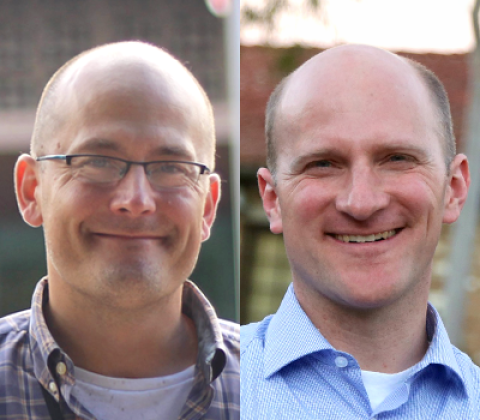Interdisciplinary Initiatives Program Round 11 - 2022
Project Investigators:
Paul Bollyky, Medicine (Infectious Diseases) and Microbiology & Immunology
Markus Covert, Bioengineering
Abstract:
The focus of this proposal is a potentially ground-breaking hypothesis: that certain bacteriophages, generally not thought to interact with human cells and tissues, may in fact play a role in human health, specifically by contributing to transplant outcomes.
This hypothesis arises from a novel epidemiologic association between a particular family of bacteriophages and lung transplant rejection, which we identified using circulating free DNA (cfDNA) and clinical data from two large, independent patient cohorts. We have isolated and cultured phages from this family, and find that they enter human cells and trigger robust innate immune responses. Our model is that these phages activate lymphocytes via pathways that bypass conventional immune suppression medications used in lung transplantation and thereby drive chronic rejection.
To test this, we will first define how this phage is internalized by human cells. We will then elucidate the intracellular signaling events that mediate immune activation by this phage. Finally, we will determine how these phages impact B-cell activation and antibody responses in a mouse model of lung transplantation. These studies will set the stage for R01-level investigations of phages as biomarkers and therapeutic targets in human lung transplant rejection. Moreover, they will establish a new field focused on the role of bacteriophage in human disease.
These trailblazing studies bring together cutting-edge, highly complementary skill sets and technologies in two Stanford labs that heretofore have not published together. Together, the Covert Lab’s focus on cell signaling and live-cell fluorescence microscopy and the Bollyky Lab’s focus on translational immunology and infectious diseases will break this new field wide open.



